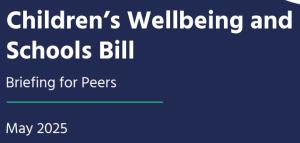An inconsistent approach to SEND – findings from analysis of Education Health and Care Plans (EHCPs)
Today I am publishing a report my Office has undertaken of just under 650 EHCPs in two local authorities (LAs). We found variation in the accessibility of EHCPs and the extent to which outcomes set in EHCPs are specific, measurable, achievable, realistic and time bound. Parents shouldn’t have to be the sole advocate for their children’s support and education, it should be on all of us to design and deliver a system that facilitates that.
Our report explores the inconsistencies in the structure, outcomes and timescales of EHCPs in two local authorities in England. EHCPs give detailed insights into the care of children with SEND in England and this research therefore enables comparison of the provision, services and outcomes for children with SEND across and between LAs. In one LA, outcomes tended to be set for 3 years after writing the EHCP, up to a maximum of nearly 6 years, indicating wide variation in outcome timescales. Our research also showcased the inaccessibility of EHCPs, as in both LAs, the documents were on average 5000 words in length, taking around 50 minutes to read out-loud to a child with SEND.
I will use these findings to inform my submission to the SEND and AP green paper consultation. What I do know is that children’s voices need to be central to both the Review and the EHCP process – we need to ask, listen and act. We need to make sure that children’s experiences are consistent across the country, wherever they live, whichever school they attend, and whatever their needs are. In terms of EHCPs, this means we should look to establish a digital, standardised platform across England for the administration of EHCPs, to ensure communication and transferability between LAs, health and schools and consistency and accessibility across outcomes, funding and provision for children with SEND.
Next steps
My formal response to the consultation, which will be published over the coming months, will aim to put the voices of children at the heart of the review process. It will be accompanied by/consist of a report presenting the thoughts and voices of children with SEND across England, gathered through a wide-scale nationally representative survey of over 3,000 children in March 2021. The report will also include further analysis on the sample of EHCPs, focusing on the section on the child’s views and aspirations. My team will also conduct focus groups with children with SEND, and a review of cases involving children with SEND that we have received through our Help at Hand helpline.
The Green Paper proposals will help to improve these children’s lives, as a part of a wider system that dovetails with children’s social care and the Schools White Paper, so that we can have all the pieces of the jigsaw to making the system better for them. It is on all of us working with and for children to help create a system that facilitates this, and we must now listen to as many children and families as possible to make sure that these proposals work for them. There is lots to be celebrated in England’s school system, but we need to share this promise with even more children so that we deliver for every child.
The time is now to shift the dial, and if all of us working with children commit to doing just that, we can deliver for all of England’s children – that means every child, in every corner of England, receiving the world class education, care and support they deserve and need, to set them up for life.



